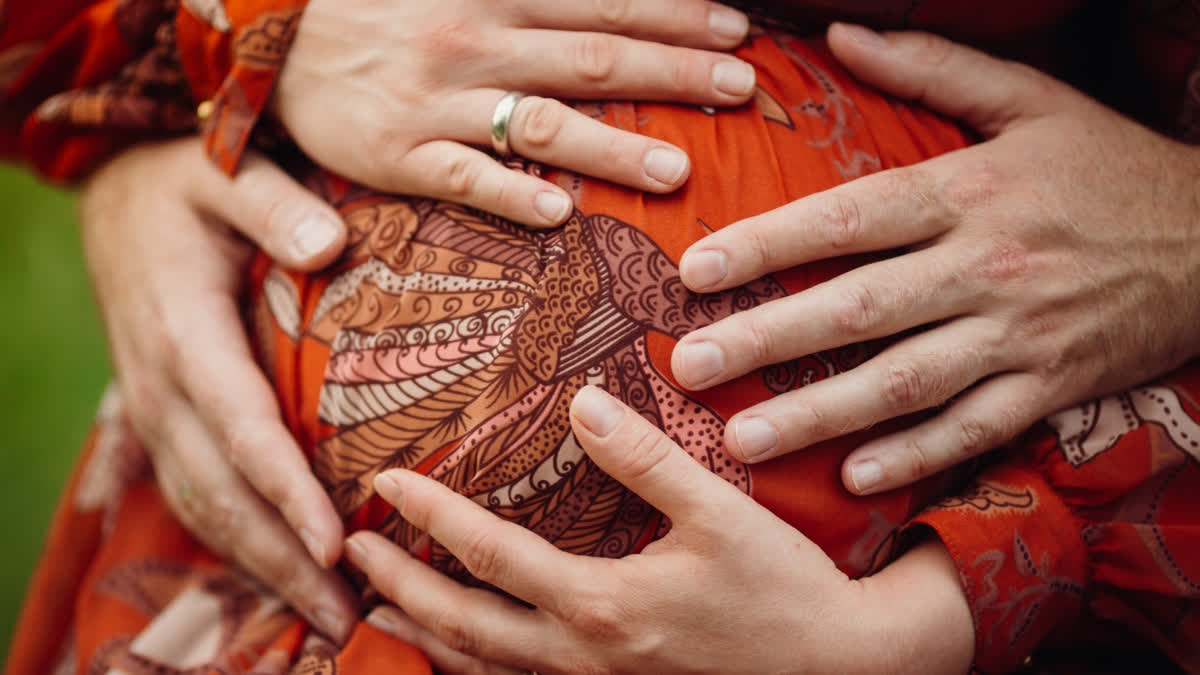In India, societal expectations around women’s bodies, particularly those of new mothers, are unrelenting. While pregnancy is celebrated as a transformative journey, the postpartum period often becomes a battleground for scrutiny and unsolicited advice. For celebrities, this magnification of appearance is amplified under public gaze, leading to harmful narratives around weight gain, body shaming, and unrealistic post-pregnancy recovery timelines.
For instance, Aishwarya Rai Bachchan was body shamed after she gained weight post delivery. Similarly, Kareena Kapoor Khan too was at the receiving end of the trollers when she gained weight after both her pregnancies. If not celebrities, most women in India go through the phase of unsettling comments and pressure of going back to shape - sometimes, even from their partners and in-laws.
This stigma often reduces women to their physical appearance, ignoring the cellular and emotional changes they undergo during and after pregnancy. It also perpetuates harmful myths about exercise, weight management, and recovery, which discourage women from embracing the natural rhythms of their changing bodies.
Natural yet unnatural expectations
Dr. Surabhi Siddhartha, consultant obstetrician and gynecologist at Motherhood Hospital in Mumbai says gaining weight during the pregnancy is natural and necessary. "It is necessary for the growth and development of the baby. This helps ensure that enough nutrients and energy are supplied to the mother as well as the baby," explains Dr. Siddhartha. She also says that the hormonal changes are the major contributor to the extreme weight gain during the pregnancy.
Pregnancy triggers an extraordinary transformation in a woman’s body. Beyond the visible changes, there are cellular-level shifts, including hormonal surges, increased blood volume, and tissue remodeling, all aimed at nurturing new life. Yet, these natural changes are often met with judgment rather than understanding.
For many women, societal pressures to maintain a certain body type can lead to feelings of inadequacy. Comments like "You should lose the baby weight soon" or "You have changed so much" not only undermine a woman’s confidence but also ignore the fact that her "whole body has changed".

Eight months pregnant Shilpee Surana has gained 20 kg weight due to medications. She says, the pressure doesn't come from the family when a woman is pregnant but it is after delivery that everyone starts advising to lose weight. "They ignore the fact that the new mother is going through postpartum issues and she should be given moral support as she herself feels conscious about her weight," says Shilpee, who is a charted accounted in a corporate firm. She adds that partner's support is essential for women to be mentally healthy when it comes to being stressed about weight gain. "My husband reads about pregnancy and about the medications I have been put on. He understands so he supports me morally. But not every woman has that support system," she adds.
Dr. Siddhartha agrees that family plays a crucial role in supporting pregnant women in dealing with this phase. "They can offer emotional support to her while encouraging healthy habits. They can help her stay motivated and feel confident about her body and weight."
Myths about exercise and weight gain
The stigma around weight gain during pregnancy is perpetuated by misconceptions about physical activity. While traditional norms often discourage exercise, research shows that staying active during pregnancy can benefit both the mother and baby. Moderate exercise improves cardiovascular health, reduces pregnancy-related complications, and helps manage weight gain.
In India, there is an added cultural pressure to "feed more to women" during pregnancy, often conflating overeating with care. While adequate nutrition is essential, excessive weight gain due to unhealthy eating habits can complicate delivery and recovery.
"Educating women about balanced diets and safe physical activity during pregnancy is key to empowering them to make informed choices," says Dr. Prachi Sarin Sethi, senior consultant obstetrician, gynecologist and laparoscopic surgeon at Motherhood Hospitals in Gurugram.
Late pre-pregnancy and weight gain
While gaining weight during pregnancy and post delivery is normal, one also missed out on a fact that late pregnancy can also contribute to weight gain. Actress Rupali Ganguli known for her popular role as Anupamaa and Monisha in Sarabhai vs Sarabhai opened up about her journey after giving birth to her son Rudransh. The actress had a late pregnancy at 36 and was trolled mercilessly. In an interview, she said she went from 58 kilos to 86 kilos after delivery. "When I would take my child out for a walk, certain neighbouring aunties that I didn’t even know… ‘Arre, tum toh Monisha ho, kitni moti ho gayi ho' (You are the actor who plays Monisha, right? You have gained so much weight).’ Who gives anybody a right to judge a mother? Nobody knows the kind of issues that a woman is going through," the actress had said in an interview.
Additionally, the pressure of staying active during late pregnancy becomes increasingly challenging but no less important. "Light exercises, such as walking or prenatal yoga, can improve circulation, reduce stress, and prepare the body for labor. These activities should be tailored to each woman’s comfort and medical guidance, creating an environment that prioritises well-being over aesthetics," says Dr. Siddhartha.
Postpartum recovery and snapback
After delivery, like Surana said, the real burden of weight comes on women. The pressure of losing weight immediately after delivering the baby is experienced by many women. Priya Sharma, who embraced motherhood later in life, says people were skeptical if she will ever be able to lose weight. "When I got pregnant at 38, I gained more weight than I ever imagined. People didn’t hesitate to comment, "Are you sure you’ll lose it?’ or "It’s risky at your age". It was hard, but I reminded myself that my body was doing something miraculous. My baby was healthy, and that was what mattered. I have learned to love my body for its strength, not just its shape," says Priya.
Dr. Siddhartha says this societal pressure can contribute to mental health issues. "There’s this societal pressure on women to suddenly lose all the weight right after the pregnancy. This unnecessary expectation can make them feel stressed, anxious, and depressed. Over time, it can take a toll on their mental health," says the doctor.
Moreover, postpartum recovery is not just about shedding weight; it’s about healing—physically and emotionally. Hyderabad based fitness trainer and certified nutritionist Krishna N says exercise after delivery should focus on reproductive recovery including strengthening the pelvic floor, improving core stability, and restoring overall physical function. "However, in a culture that desires quick returns to pre-pregnancy appearances, women often feel pressured to prioritise aesthetics over their health. The unrealistic expectations of immediate postpartum fitness is a toxic narrative sans the struggles of recovery and the diversity of postpartum experiences.

A call to celebrate women's strength
The journey through pregnancy and motherhood is one of the most transformative experiences a woman undergoes. Rather than stigmatising weight gain or body changes, society must celebrate the resilience and strength that women embody during this time. "Women can deal with this crucial phase of life with persistent will and determination. This can be achieved by practicing self-love, seeking support from her loved ones, and focusing on improving her physical and mental health without feeling pressured about their looks or appearance," suggests Dr. Siddhartha.
Though, many women struggle to deal with the stigma attached to the weight gain after pregnancy, it is time to break free from the shackles of body shaming and unrealistic expectations. It is also important to create a culture where women are valued for their journeys, not judged for their appearances.
Read More:



